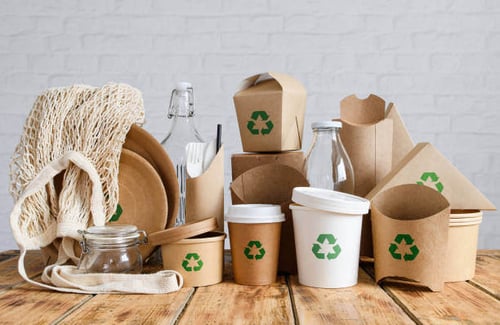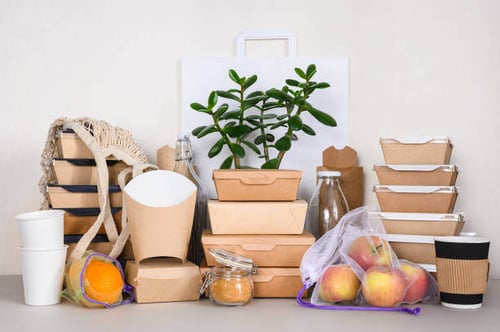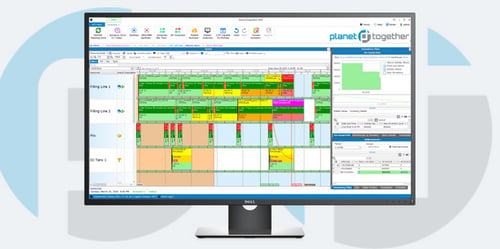Topics: Supply Chain Optimization, PlanetTogether Software, Improved Resource Utilization, Integrating PlanetTogether, Enhanced Production Scheduling, Packaging Manufacturing, Sustainability Tracking and Reporting

The packaging industry is at a pivotal point of transformation. With rising consumer demand for eco-friendly products and increasing regulatory pressures to reduce environmental impact, biodegradable packaging has emerged as a key focus area. For Operations Directors in packaging manufacturing facilities, adopting biodegradable packaging not only meets market expectations but also aligns with corporate sustainability goals.
However, this shift presents challenges that require efficient planning, execution, and optimization of manufacturing processes. The integration of advanced manufacturing planning tools like PlanetTogether with ERP systems such as SAP, Oracle, Microsoft Dynamics, Kinaxis, or Aveva can significantly streamline these efforts.

Biodegradable packaging materials decompose naturally through the action of microorganisms, reducing long-term waste in landfills. Market analysts predict a substantial increase in the demand for biodegradable packaging across industries such as food and beverage, pharmaceuticals, and consumer goods.
Several factors contribute to this growth:
Environmental Regulations: Governments worldwide are implementing strict regulations to limit single-use plastics.
Consumer Awareness: Environmentally conscious consumers are driving demand for sustainable packaging solutions.
Corporate Responsibility: Companies are adopting green initiatives to improve brand reputation and meet sustainability targets.
Transitioning to biodegradable packaging materials introduces several operational challenges:
Material Variability: Biodegradable materials like PLA (polylactic acid) and PHA (polyhydroxyalkanoates) exhibit different behaviors than traditional plastics.
Production Efficiency: Adjusting machinery and processes for biodegradable materials can impact production rates.
Supply Chain Complexity: Sourcing biodegradable materials involves navigating evolving supplier landscapes.
Cost Management: Biodegradable materials often come at a premium compared to conventional plastics.

To overcome these challenges, operations directors must embrace integrated planning and scheduling tools. Integrating PlanetTogether with enterprise systems like SAP, Oracle, Microsoft Dynamics, Kinaxis, or Aveva provides real-time visibility, optimized scheduling, and streamlined operations.
Enhanced Production Scheduling:
PlanetTogether's advanced algorithms can dynamically adjust production schedules based on biodegradable material availability.
Integration with SAP or Oracle ensures that production planning aligns with procurement and inventory levels.
Improved Resource Utilization:
Integrated systems provide insights into equipment performance, ensuring that machines are calibrated for biodegradable materials.
Microsoft Dynamics integration supports resource allocation and minimizes production downtime.
Supply Chain Optimization:
Real-time tracking of biodegradable material shipments helps anticipate delays.
Kinaxis' supply chain planning capabilities can model various sourcing scenarios, mitigating supply chain risks.
Sustainability Tracking and Reporting:
Aveva's industrial software can monitor emissions and waste reduction efforts.
Integration with PlanetTogether helps correlate production efficiency with environmental impact.
Collaborate with Material Suppliers:
Establish long-term partnerships with suppliers of biodegradable materials.
Use integrated systems to monitor material quality and availability.
Invest in Employee Training:
Equip teams with the skills to handle new materials and operate advanced planning tools.
Leverage Predictive Analytics:
Use PlanetTogether's predictive capabilities to anticipate production issues.
Integrate with Kinaxis for forecasting supply chain disruptions.
Monitor Sustainability Metrics:
Track energy consumption, material waste, and carbon footprint using Aveva's analytics.
As technology and material science continue to evolve, packaging manufacturers must stay ahead of trends. Integrating PlanetTogether with SAP, Oracle, Microsoft Dynamics, Kinaxis, or Aveva provides a robust foundation for adapting to market demands while meeting sustainability goals.
Biodegradable packaging isn't just a trend—it's the future. By adopting integrated manufacturing systems, operations directors can drive efficiency, reduce environmental impact, and secure long-term competitive advantages in the packaging industry.
Are you ready to take your manufacturing operations to the next level? Contact us today to learn more about how PlanetTogether can help you achieve your goals and drive success in your industry.
Topics: Supply Chain Optimization, PlanetTogether Software, Improved Resource Utilization, Integrating PlanetTogether, Enhanced Production Scheduling, Packaging Manufacturing, Sustainability Tracking and Reporting
0 Comments







LEAVE A COMMENT